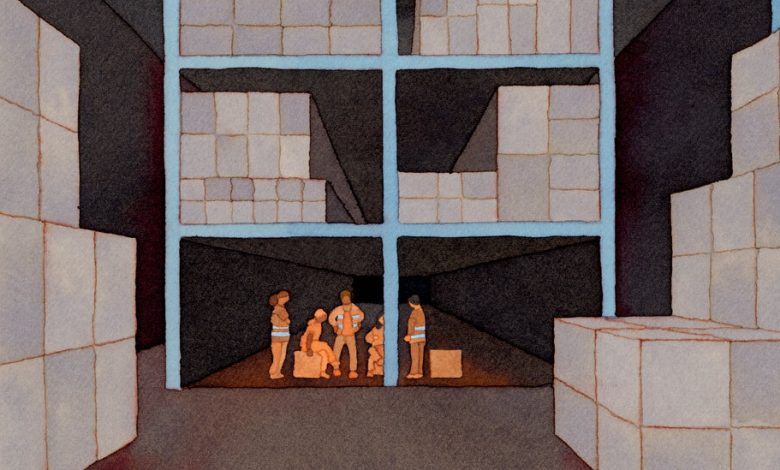High-Stakes Capers Starring Low-Wage Workers

HELP WANTED, by Adelle Waldman
GREEN DOT, by Madeleine Gray
The modern workplace contains and fuels so much of our lives. Who are we when we work? What does our work say about us? It’s no surprise that fiction writers have increasingly turned to the workplace setting, using it as a reflection of society — its power dynamics and cultural shifts — as well as a source of characters’ private ambitions, disillusionments, desires and fears.

In “Help Wanted,” her long-anticipated follow-up to “The Love Affairs of Nathaniel P.,” Adelle Waldman applies her sharp sense for relational drama and dark comedy to the retail work space.
The novel is set at a branch of Town Square, a big-box store not unlike Target, in fictional Potterstown, N.Y., a stand-in for the many economically distressed areas in the Southern Tier and Hudson Valley. It’s become a “popular summer destination for a certain type of city person (the kind who eschewed — or was priced out of — the Hamptons),” but many residents struggle to find work and stability since IBM left town.
Waldman focuses on members of “Team Movement” at Store No. 1512, who unload trucks, organize the warehouse and stock shelves before the store opens. The novel roves among 12 different perspectives, charted at the front in a pseudo-family tree. As Big Will, the store manager, thinks while surveying his crew, “The diversity of race, gender and ethnicity in the faces before him would have filled the headmaster of an elite private school with envy.” There’s Nicole, a white Potterstown local and the youngest Movement member at 23. And Ruby, a Black woman in her 40s, who has worked service jobs since she was a teenager. Diego, an immigrant from Honduras, prides himself on being competent at work, but struggles in his personal relationships. Val, a young lesbian mom, is ashamed of her position and desperate for professional growth.
At times, characters’ desires and hardships begin to blend into one another. Multiple Movement members struggle with alcohol, are single parents, live with parents or grandparents and have challenges in their intimate relationships. But this seems partly by design. “Help Wanted” is structured around the collective, depicting the toll of capitalism on low-wage workers. Hours the team gets, benefits that are cut, occasional free meals handed out, cost-cutting pressure from management, the alluring potential of promotion, the bureaucratic rules from corporate — every decision at Town Square greatly alters each person’s day-to-day life and sense of worth.